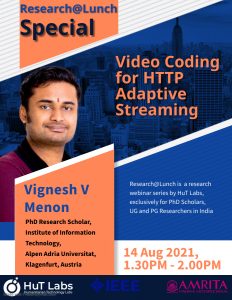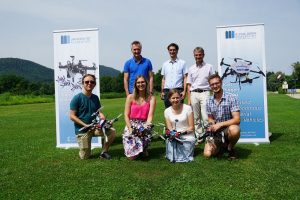Link: IEEE Global Communications Conference 2021
7-11 December 2021 // Madrid, Spain // Hybrid: In-Person and Virtual Conference Connecting Cultures around the Globe
Authors: F. Tashtarian*, R. Falanji‡, A. Bentaleb+, A. Erfanian*, P. S. Mashhadi§,
C. Timmerer*, H. Hellwagner*, R. Zimmermann+
Christian Doppler Laboratory ATHENA, Institute of Information Technology, Alpen-Adria-Universität Klagenfurt, Austria*
Department of Mathematical Science, Sharif University of Technology, Tehran, Iran‡
Department of Computer Science, School of Computing, National University of Singapore (NUS)+
Center for Applied Intelligent Systems Research (CAISR), Halmstad University, Sweden§
Abstract: Recent years have seen tremendous growth in HTTP adaptive live video traffic over the Internet. In the presence of highly dynamic network conditions and diverse request patterns, existing yet simple hand-crafted heuristic approaches for serving client requests at the network edge might incur a large overhead and significant increase in time complexity. Therefore, these approaches might fail in delivering acceptable Quality of Experience (QoE) to end users. To bridge this gap, we propose ROPL, a learning-based client request management solution at the edge that leverages the power of the recent breakthroughs in deep reinforcement learning, to serve requests of concurrent users joining various HTTP-based live video channels. ROPL is able to react quickly to any changes in the environment, performing accurate decisions to serve clients requests, which results in achieving satisfactory user QoE. We validate the efficiency of ROPL through trace-driven simulations and a real-world setup. Experimental results from real-world scenarios confirm that ROPL outperforms existing heuristic-based approaches in terms of QoE, with a factor up to 3.7×.
Index Terms—Network Edge; Request Serving; HTTP Live Streaming; Low Latency; QoE; Deep Reinforcement Learning.













